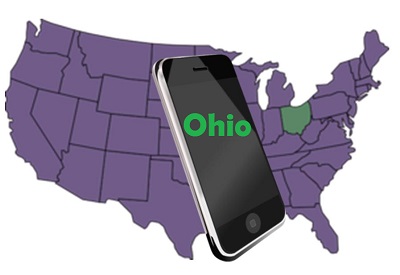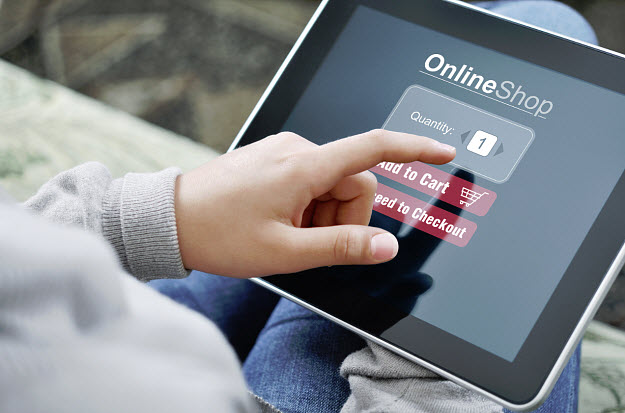BWild |
September 14, 2015
MCX will be testing CurrentC among large retail partners in Ohio
The Merchant Consumer Exchange (MCX) is planning to begin testing its new mobile commerce platform, CurrentC, among its large retail partners in Ohio. MCX was established as a partnership among several large retailers, including Target and Walmart. These retailers had taken note of the rise in mobile shopping and have felt the need to engage consumers more effectively. As such, MCX was tasked with developing a mobile commerce platform that would serve this purpose.
Test may determine the launch of the new mobile commerce platform
Ohio will host the first major test of the new mobile commerce platform. The service will allow retailers to support mobile payments being made by customers. Those with smartphones will be able to use the service to make transactions directly from their device. The platform itself has been in development for some time, with the retail partners of MCX showing some impatience when it comes to waiting for a service they can use. Based on the test results in Ohio, CurrentC may see a limited launch next year or within the coming months.
Retailers are beginning to seek out other platforms they can use
 Initially, MCX partners has agreed not to support any other mobile commerce platform while they waiting for CurrentC to be released. This agreement is set to expire within the coming week, however, which will allow retailers to embrace other platforms, such as those coming from Google, Apple, and Samsung. Being able to embrace other platforms will provide retailers with a way to effectively engage mobile consumers, but it may be bad news for CurrentC, which has already struggled to maintain the support of retailers.
Initially, MCX partners has agreed not to support any other mobile commerce platform while they waiting for CurrentC to be released. This agreement is set to expire within the coming week, however, which will allow retailers to embrace other platforms, such as those coming from Google, Apple, and Samsung. Being able to embrace other platforms will provide retailers with a way to effectively engage mobile consumers, but it may be bad news for CurrentC, which has already struggled to maintain the support of retailers.
Security remains a primary concern for those interested in mobile commerce
One of the issues facing mobile commerce as a whole is security. Many retailers have shown concern for the security of consumer financial information when they are participating in mobile commerce. Creating secure platforms has proven somewhat complicated, however, as methods to exploit these platforms have been growing more sophisticated.
Denny |
September 11, 2015
Consumers are open to accepting geolocation tech in order to access in-store services.
According to the newly released results of a study conducted by Zebra Technologies in its Corporation Global Shopper Study, shoppers are open to using location based technologies while in store in order to be able to gain access to services and offers that will enhance their experiences.
The study results offer insight into a range of different consumer interests in terms of mobile tech use.
Among the participants in the survey, the majority expressed an interest in using relevant location based technology over a store’s WiFi in order to enhance their shopping experience. Among the types of services in which they expressed interest were mobile coupons (said 51 percent), in-store shopping maps (45 percent), and help from associates (41 percent). This was the eighth annual edition of this study by Zebra Technologies.
The study also showed that location based technology could offer real-time info that shoppers want.
 Among the respondents to this survey, 34 percent said that they felt that they had a better connection with a store through real-time information that they received through mobile devices than they did through the assistance of human associates working in the stores. At the same time, 64 percent of shoppers expressed that there was a greater likelihood that they would buy something if they felt that they were getting better customer services. Moreover, 52 percent of the participants in the research said that they valued retailers that improved the efficiency of the shopping experience through the use of technology.
Among the respondents to this survey, 34 percent said that they felt that they had a better connection with a store through real-time information that they received through mobile devices than they did through the assistance of human associates working in the stores. At the same time, 64 percent of shoppers expressed that there was a greater likelihood that they would buy something if they felt that they were getting better customer services. Moreover, 52 percent of the participants in the research said that they valued retailers that improved the efficiency of the shopping experience through the use of technology.
Over three out of every four shoppers (76 percent) stated that they had a positive feeling about the experience of shopping in brick and mortar stores, and almost half of all consumers believe that technology solutions are assisting retailers in being able to better their shopping experience.
More insight was provided about the potential value of location based technology when it was revealed that 53 percent of consumers said that they “showroomed”, that is, they went to a store in order to have a look at a product, in person, but then bought that same item online. Equally, about a third of shoppers preferred to buy a product online and then pick it up at their nearest retail location, instead of having it shipped.
 Initially, MCX partners has agreed not to support any other mobile commerce platform while they waiting for CurrentC to be released. This agreement is set to expire within the coming week, however, which will allow retailers to embrace other platforms, such as those coming from Google, Apple, and Samsung. Being able to embrace other platforms will provide retailers with a way to effectively engage mobile consumers, but it may be bad news for CurrentC, which has already struggled to maintain the support of retailers.
Initially, MCX partners has agreed not to support any other mobile commerce platform while they waiting for CurrentC to be released. This agreement is set to expire within the coming week, however, which will allow retailers to embrace other platforms, such as those coming from Google, Apple, and Samsung. Being able to embrace other platforms will provide retailers with a way to effectively engage mobile consumers, but it may be bad news for CurrentC, which has already struggled to maintain the support of retailers.
 Among the respondents to this survey, 34 percent said that they felt that they had a better connection with a store through real-time information that they received through mobile devices than they did through the assistance of human associates working in the stores. At the same time, 64 percent of shoppers expressed that there was a greater likelihood that they would buy something if they felt that they were getting better customer services. Moreover, 52 percent of the participants in the research said that they valued retailers that improved the efficiency of the shopping experience through the use of
Among the respondents to this survey, 34 percent said that they felt that they had a better connection with a store through real-time information that they received through mobile devices than they did through the assistance of human associates working in the stores. At the same time, 64 percent of shoppers expressed that there was a greater likelihood that they would buy something if they felt that they were getting better customer services. Moreover, 52 percent of the participants in the research said that they valued retailers that improved the efficiency of the shopping experience through the use of 